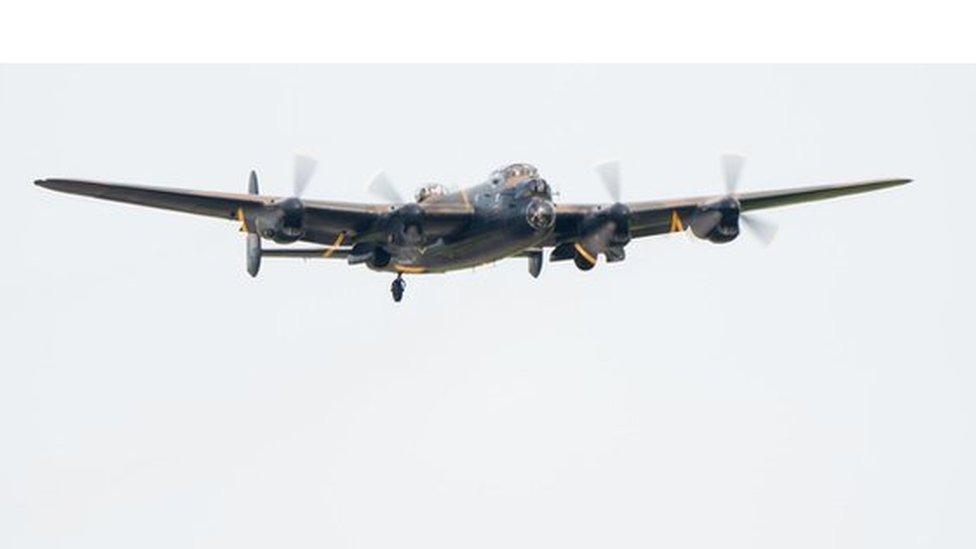Caribbean WW2 veteran recalls role in RAF's Dambusters Squadron
- Published
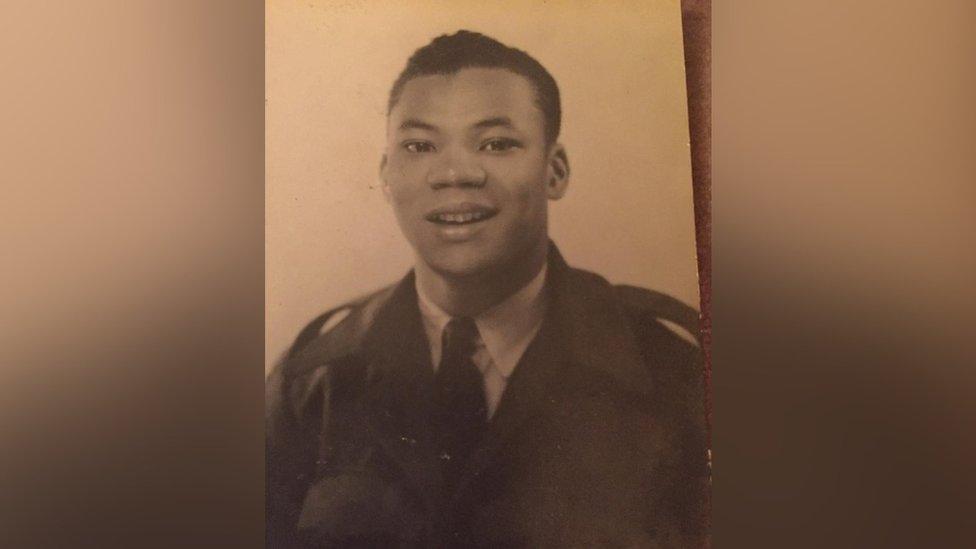
Ralph Ottey joined the RAF aged 19 in 1944
One of Britain's last surviving West Indian World War Two veterans has spoken of his time serving with Lincolnshire's Dambusters.
Ralph Ottey was just 19 when he left Jamaica to join the RAF in 1944, saying he felt it was his duty to help the "mother country".
He later transferred to RAF Woodhall Spa, where he served with the 617 Dambusters Squadron.
Mr Ottey said: "I was a little boy from Jamaica flying in a Lancaster bomber."
The 99-year-old, who now lives in Boston, Lincolnshire, had originally wanted to become a teacher but instead became one of more than 10,000 West Indians who travelled across the Atlantic to join the fight against Hitler.
Mr Ottey first worked as a driver for an officer of 617 Squadron before passing his air crew exam.
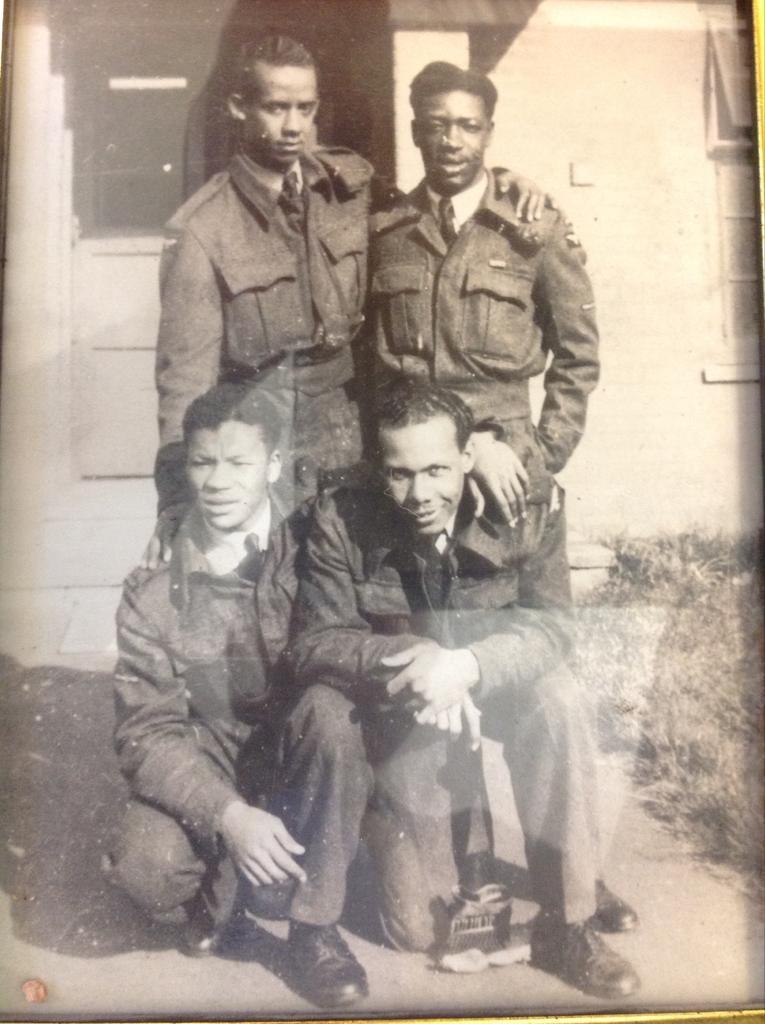
Mr Ottey (bottom left) applied retrospectively for his World War Two campaign medals
The now 99-year-old told the BBC: "In less than no time, I was a little boy from Jamaica flying in a Lancaster bomber.
"I was part of the world's best known bombing squadron, 617. I still have my 617s."
The Dambusters adopted the name following a night-time raid on dams in the Ruhr Valley in Germany on 17 May in 1943. The squadron was deployed for numerous operations over the years and, on occasions, crews did not make it back to base.
Mr Ottey recalled: "We all waited up to hear what happened if they would return. They just didn't come back.
"But when they did return, we had what we called a blowout."
Mr Ottey, who was brought up by his grandparents, said his sense of patriotic duty developed while he was still at school.
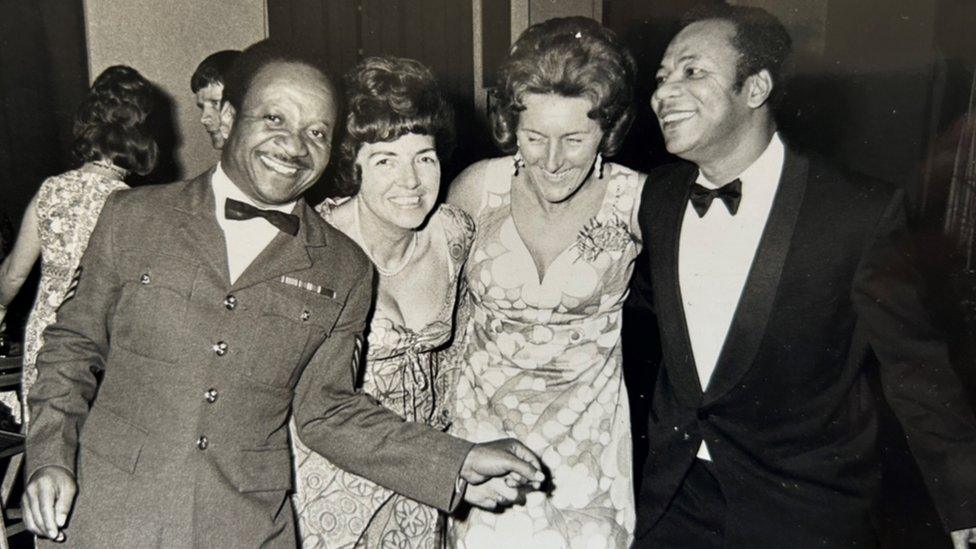
Mavis Ottey (centre right) and Ralph Ottey (right) were married in Scunthorpe in 1949
He said: "We thought we were part of England. You were brought up to think like that because all the books you had at school; they were all based on England."
After making the life-changing decision to leave Jamaica, Mr Ottey had to undergo intense training which he said transformed him from a civilian to a soldier.
"You changed from a 19-year-old who sees life as an easy street. Within 13 weeks you were trained that if you had to fight for your life, you could easily kill someone to save yourself," he said.
"We knew how to respond to the word of command. If your superior officer said jump, you would jump."
In 1948 he briefly returned to Jamaica on HMT Empire Windrush, the very same ship that later brought the first post-war Caribbean workers to the UK to fill labour shortages.
Its passengers and others who arrived in the UK from Caribbean countries between 1948 and 1971, became known as the Windrush generation.
Following his return to the UK, he worked as an accountant and married Mavis Reece, from Boston. The couple's daughter, Lesley Morrison, said her dad was "an inspiration".
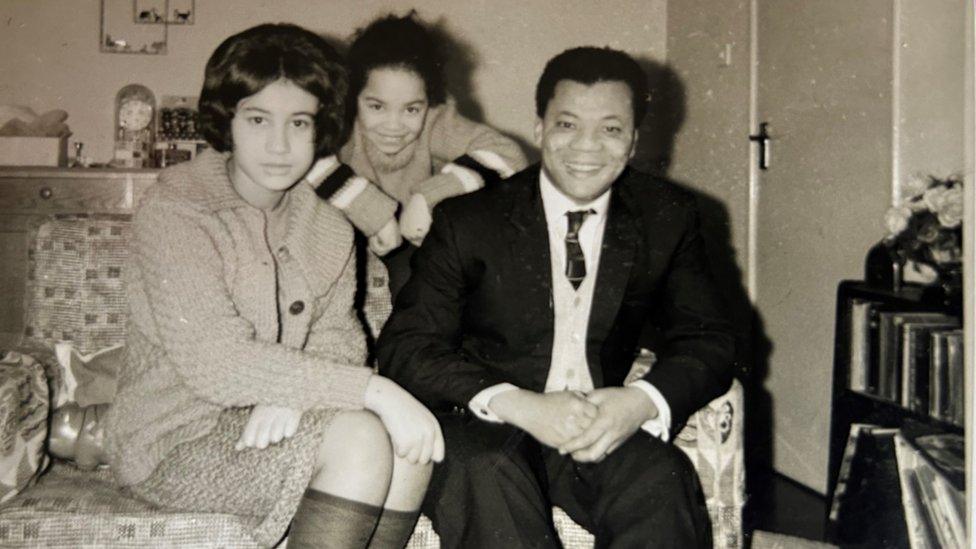
Lesley Morrison (left) described her father as "a celebrity"
She told the BBC: "He really is a celebrity, a star cricketer, a serious fast bowler in the town and that's why we're giving him vitamins to make sure he makes 100."
Over the years, Mr Ottey has documented his life story in eight books.
Mrs Morrison said: "Dad wrote about his war experience because he was advised that if he didn't someone else would.
"He wanted his family to understand why he ended up in the UK, when he could have done equally well in Jamaica. He also had an experience that shaped his life."
Speaking of his time in the armed forces, he said: "I'm quite proud that I had the courage to volunteer. When you're 19 you don't see any danger. I was doing my bit."

Follow BBC East Yorkshire and Lincolnshire on Facebook, external, Twitter, external, and Instagram, external. Send your story ideas to yorkslincs.news@bbc.co.uk, external.
Related topics
- Published16 May 2023
